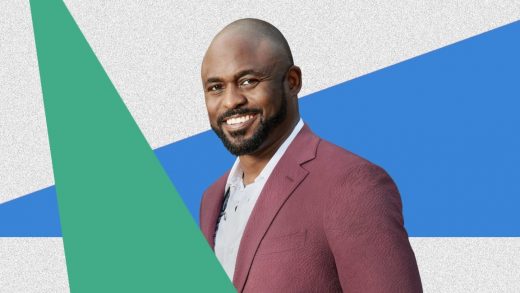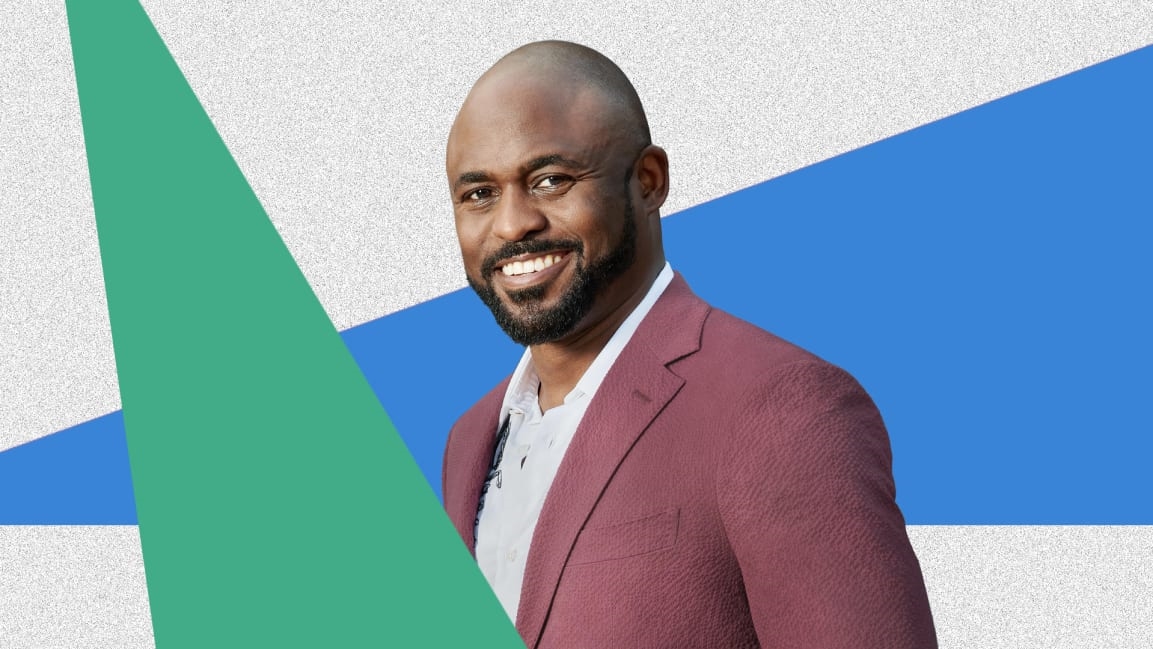Wayne Brady gives you permission to own your passion
Listen to the latest episode of Fast Company’s Creative Conversation podcast on Apple Podcasts, Spotify, RadioPublic, Google Podcasts, or Stitcher.
Wayne Brady is arguably one of the most multifaceted performers in show business, as a comedian; an actor on Broadway (Chicago, Kinky Boots), film, and television (Black Lightning, The Bold and the Beautiful); a recording artist (A Long Time Coming); and game show host and producer (Let’s Make a Deal and Fox’s latest prime-time offering, Game of Talents).
“I did that so I wouldn’t get stuck in amber of what my career is,” Brady says in the latest episode of Fast Company’s Creative Conversation podcast. “That’s why I’m always doing something else. That’s why I can’t stay in my lane, because as far as I’m concerned, I’m on a four-lane highway and I’m going to take up every single lane when it suits me.”
The catalyst for Brady’s expansive résumé was his breakout gig on the U.S. version of Whose Line Is It Anyway? Improv comedy allowed Brady not only to step more firmly into his abilities as a performer, but also to do so as a Black performer.
“Being one of the improvisers of color that has notoriety has taught me to walk in my own skin, to claim something,” he says.
“There were a lot of [people] that were super proud to have a brother on what was seen as this primarily white show,” Brady continues. “For as many people that went, ‘That’s great,’ there were just as many cats going, ‘Look at this one up here just clowning.’ I get how, representation-wise, we sometimes feel that the people that we want to hold dear, as soon as everyone accepts them, that they’re not as much for us. I don’t agree with that thinking. It locks us into a certain paradigm that, Lord knows, I’ve spent the past 20-odd years on TV trying to crack.”
In this episode, Brady unpacks the intersection of his Black identity and creativity, what we can all learn from the “controlled free fall” that is improv, how he manages multitasking, and more.
Check out some of the highlights of the conversation below, and be sure to listen to the full episode wherever you enjoy your podcasts.
On learning how to own his passion as a kid . . .
“The guys in my neighborhood weren’t really about me talking about watching PBS’s Great Performances and Upstairs, Downstairs or talking about Monty Python or watching old black-and-white sketch shows with Sammy Davis Jr., Sid Caesar, or Ernie Kovacs. That really wasn’t a thing, so I kept a lot of that to myself.
“[Claiming my passion for performing] was exactly like what I pictured life would be like when I first watched Fame. My response wasn’t, ‘Oh, it’s so cool to watch the singing and dancing.’ My response was, ‘Those kids are having such a good time. So free. What does that feel like? What does that feel like to be able to stand in your lunchroom or in the theater and sing a song and not feel the weight of judgment?’ When I actually walked into a space that was welcoming of me, that was my Fame moment. In my head, I truly was like, Oh, shit. I’m Leroy (without the tight shorts) and it felt amazing.”
. . . and as an adult
“I never really gave myself the permission to own [doing improv]. It wasn’t until I got Whose Line when I was thrown onstage scared absolutely shitless. In real life, I’m not super gregarious. I’m very low-key. I like to be by myself. But I tapped into, You now have to go Super Saiyan and be this other thing. I’d never really tapped into that before until that show. And it’s an amazing thing when someone gives you permission to do something—when you really should be giving yourself the permission and the space. But when someone goes, ‘Wayne’s really good at this,’ you go, ‘Oh, yeah! [I am] really good at this.’ ”
On finding the fun in creativity
“I found myself paralyzed for a few years even as a songwriter. I didn’t make music for years, because it’s like, Well, no one wants to hear my music, and I don’t know if I can. So I wouldn’t give myself the permission to be open and write. I wouldn’t give myself the permission to have fun. And then doing improv on tour stopped being fun, because I wasn’t giving myself the license [to have] fun. It was just a job, and I couldn’t find the joy in it again. You have to let yourself have fun. You can’t wait for the creative police to come knocking at your door and tell you that you can.”
Listen to the latest episode of Fast Company’s Creative Conversation podcast on Apple Podcasts, Spotify, RadioPublic, Google Podcasts, or Stitcher.
(45)



